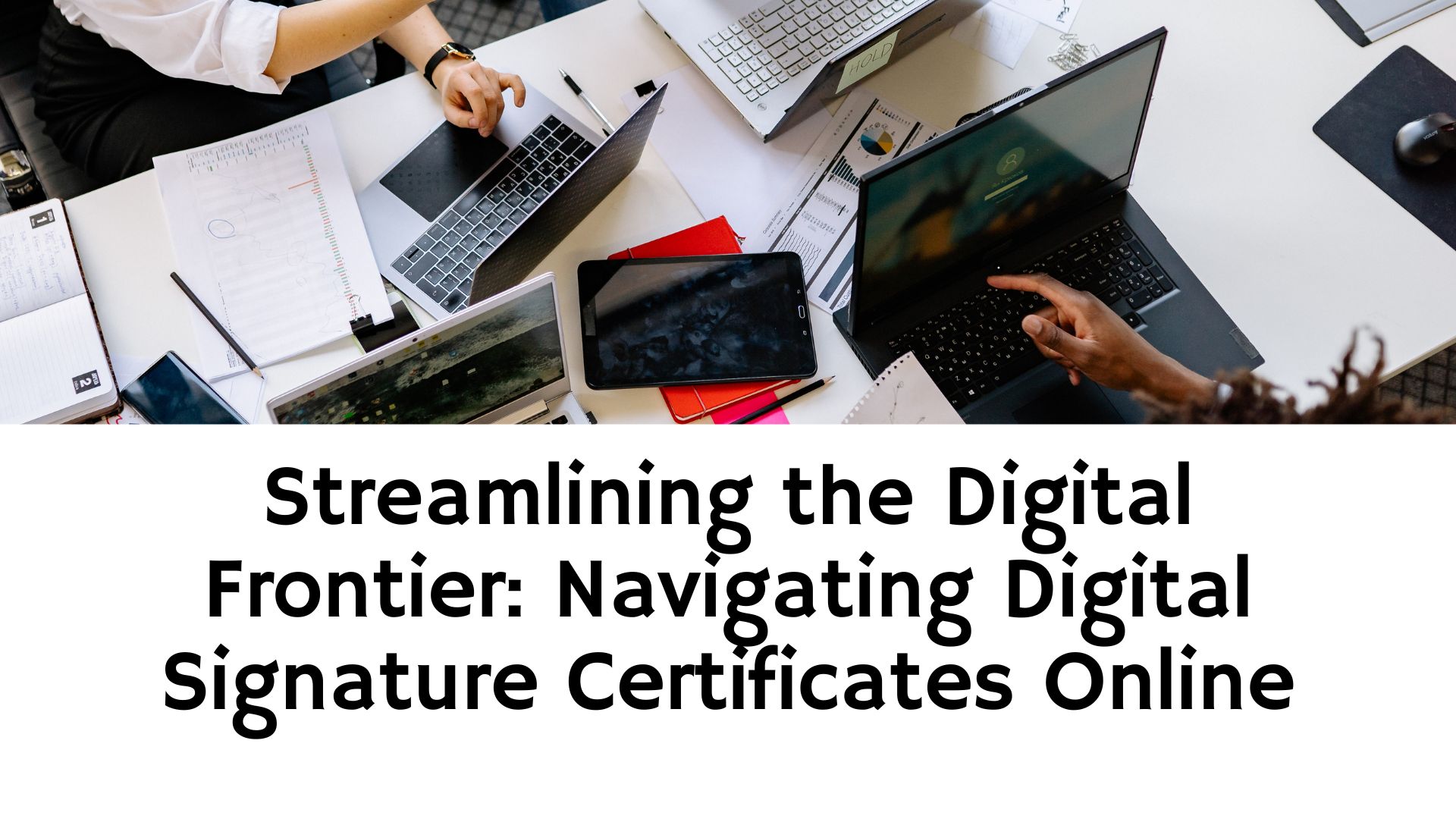In today’s rapidly evolving digital landscape, the necessity for secure and efficient online transactions has become paramount. From business agreements to personal documents, the need for authenticity and integrity in the digital sphere is undeniable. Enter digital signature certificates, a powerful tool that ensures the validity and security of electronic documents. In this comprehensive guide, we delve into the world of digital signature certificates, exploring their significance, implementation, and the ease of obtaining them online.
Understanding Digital Signature Certificates
At its core, a digital signature certificate (DSC) is an electronic form of identification that verifies the identity of the sender of a digital message or document. Much like a handwritten signature on a physical document, a digital signature provides assurance regarding the authenticity of the signer and the integrity of the content. However, unlike traditional signatures, digital signatures rely on cryptographic techniques to ensure security and prevent tampering.
Importance in the Digital Age
In an era dominated by digital communication and transactions, the importance of digital signature certificates cannot be overstated. Businesses rely on them to sign contracts, authenticate financial transactions, and secure sensitive data. Government agencies use them for regulatory compliance and official documentation. Even in personal affairs, such as signing legal documents or filing taxes online, digital signatures have become indispensable.
Simplifying the Process Online
Traditionally, obtaining a digital signature certificate involved complex procedures and considerable paperwork. However, with the advent of online services, the process has been streamlined significantly. Today, individuals and organizations can easily obtain digital signature certificates from authorized providers through user-friendly online platforms.
Steps to Obtain a Digital Signature Certificate Online
Choose a Trusted Provider:
Select a reputable provider of digital signature certificates. Ensure that they are accredited by relevant authorities and offer the type of certificate suitable for your needs (e.g., Class 1, Class 2, or Class 3).
Provide Identification:
Complete the necessary documentation and identity verification process as per the provider’s requirements. This may include submitting scanned copies of identification documents and undergoing verification checks.
Generate Key Pair:
The provider will assist you in generating a cryptographic key pair consisting of a private key (known only to you) and a public key (shared with others). This key pair forms the basis of your digital signature.
Certificate Issuance:
Once the verification process is complete and the key pair is generated, the provider will issue your digital signature certificate. This certificate contains your public key, along with other relevant information, digitally signed by the certification authority.
Installation and Configuration:
Follow the provider’s instructions to install and configure your digital signature certificate on your computer or device. This typically involves importing the certificate into your digital signature software or browser.
Signing Documents:
With your digital signature certificate installed, you can now digitally sign documents with ease. Most modern software applications and platforms support digital signatures, allowing you to sign PDFs, emails, contracts, and other electronic documents securely.
Benefits of Digital Signature Certificates
Security:
Digital signatures use advanced cryptographic techniques to ensure the authenticity and integrity of documents, reducing the risk of fraud and tampering.
Convenience:
Signing documents digitally eliminates the need for printing, scanning, and physical delivery, saving time and resources.
Legally Binding:
In many jurisdictions, digital signatures carry the same legal validity as handwritten signatures, making them suitable for a wide range of legal and business transactions.
Cost-Effectiveness:
By eliminating paper-based processes and reducing administrative overheads, digital signatures can lead to significant cost savings for organizations.
Suggested Read: Class 3 Digital Signature Certificate for Etender
Conclusion
As we navigate the digital frontier, the adoption of digital signature certificates emerges as a critical step towards enhancing security, efficiency, and trust in online transactions. With the availability of user-friendly online services, obtaining and utilizing digital signature certificates has never been easier. By harnessing the power of cryptography, organizations and individuals can embrace the benefits of digital signatures with confidence, paving the way for a more secure and streamlined digital future.

